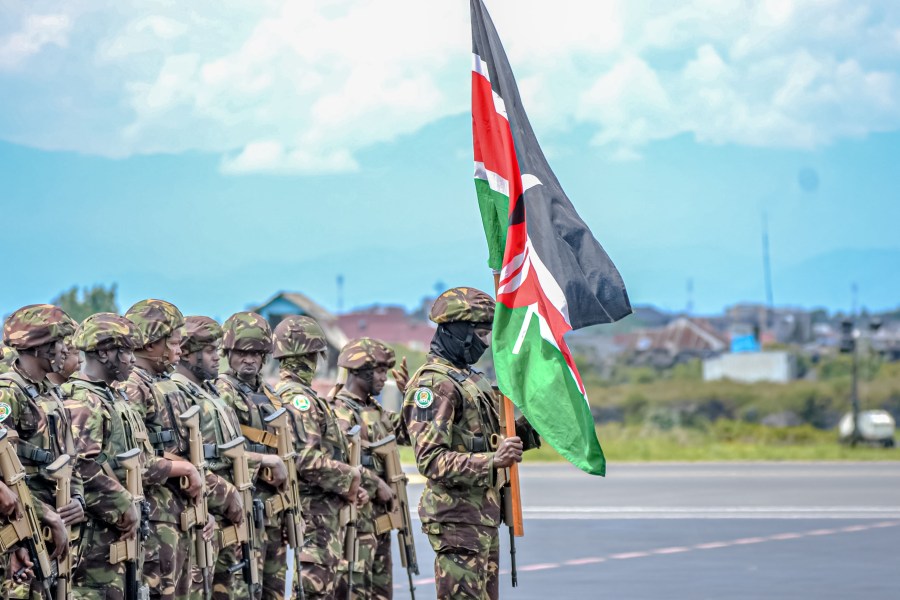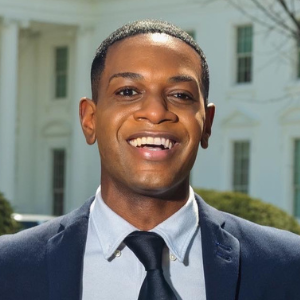Kenyan pledged to send 1,000 police officers to the destabilizing Caribbean nation; however, Haitians are concerned history will repeat itself.
As the United States commits its support of a troops-on-the-ground mission to a destabilizing Haiti led by Kenya, advocates say the mission sanctioned by the United Nations and financed by the U.S. is the equivalent of Blackface.
Despite the U.N. multinational security support mission being approved on Oct. 2, sending 1,000 Kenya police officers to Haiti, human rights activist Guerline Jozef told theGrio that geopolitically speaking, the operation is “not Kenya-led.”
Jozef, the executive director of the Haitian Bridge Alliance immigrant advocacy group, said that Haitians see the mission as “using Kenya as the Blackface to do what the U.S., the U.N., and the international community want to do.”
In recent years, Haiti has suffered from gang violence and food insecurity, compounded by the aftermath of its president’s assassination in 2021 and years of natural disasters and poverty. To date, more than 2,400 Haitians have been killed in 2023 as a result of gang violence.
The U.S. pledged up to $200 million to finance the mission, which will be joined by other “voluntary” contributions by member states, according to the Security Council.
Jozef acknowledged that the international community must address the turmoil in Haiti. However, she made clear the response by the U.S. and its allies should involve meaningful funding and acknowledgment of their current and historical roles in the destabilization of Haiti.
She described the U.S.’ financial pledge as “pennies” and “a joke” in terms of leading to any significant stabilization of the Caribbean nation.
“Not to compare; however, we see when the United States, the U.N., and others want to support Ukraine, for example. They have no issue providing $3 billion to make sure that this is the right thing for the country,” said Jozef.
In 1804, Haiti became the world’s first free Black republic before ultimately being crippled by debt incurred by its colonizer, France, followed by debts owed to other nations like Venezuela.
Given the historical harm caused to Haiti, Gozef believes the U.S. and U.N. allies see the mission being led by Kenya, a member of the Black diaspora, as “better optics.”
However, Kenya’s special mission to Haiti has already hit a roadblock. Last week, a court temporarily blocked the East African nation from sending any of its officers to Haiti because Parliament did not approve the initial agreement.

A spokesperson for the United States Mission to the United Nations, who agreed to comment on the mission with theGrio only on background, said the U.S. commends Kenya’s intention to lead the multinational mission to Haiti.
While they were aware of the court setback, the agency said the U.S. remained committed to supporting and contributing to the mission. The U.S. referred inquiries on the court decision to the Kenyan Ministry of Foreign Affairs.
Joseph Tolton, a Pan-African activist and Africa foreign policy expert, told theGrio that some Kenyans are concerned about the mission for a few reasons, including the fact that Kenyan President William Ruto made the decision unilaterally to send officers to Haiti in a “backdoor deal with the United Nations.”
If the African Union also backed the mission, said Tolton, it would have a “different sense of multilateral engagement” and a “broader sense of a Pan-Africanist intervention.”
Additionally, many Haitians do not see Ariel Henry, the acting president and prime minister who agreed to the U.N. mission, as a legitimate head of state. Henry was also suspected of being linked to the assassination of President Jovenel Moise.
Kenyans, particularly opposition party members, are also concerned about how the money paid to Kenya for the mission will be spent.
Tolton, who is the executive director of the Pan-African advocacy group Interconnected Justice, said there will likely be “inevitable casualties” in the “peacekeeping force,” and there is worry that the families of these officers “are not going to be taken care of.”
However, Tolton projected that President Ruto will ultimately have the votes he needs in Parliament to move the mission forward.

Aside from the legal challenge to the security mission, advocates expressed other concerns, like worries that Kenyan officers could commit human rights abuses against the Haitian people.
Haitians have a “great fear of international interventions,” noted Tolton.
“The record of these interventions in Haiti has just been awful, from raping and torturing people, bringing diseases, looting and stealing, and the list goes on,” he told theGrio.
However, Kenya conducted a previous peacekeeping mission in Somalia that was deemed successful, said Tolton. He added that some Kenyans in support of the mission see it as being “in solidarity with the Haitian people.”
But there are also logistical concerns about the security mission to Haiti, like Kenyan officers not speaking French or Haitian Creole.
“Who exactly are they going to be protecting and communicating? Who exactly are they going to be working with?” asked Jozef.
She added, “My hope is with whatever is happening against the will of the people of Haiti that it is taking into consideration the sustainability and addressing the root causes of the gang violence and the political turmoil that we currently are dealing with.”
Jozef called for the U.S. and other U.N. states to help Haiti reestablish its agricultural independence, particularly its rice production, which has been on the decline since the 1980s.

According to the Office of the U.S. Trade Representative, U.S. goods exports to Haiti in 2022 increased 8.4% to $1.4 billion from 2021, up 34% from 2012. However, U.S. goods imports from Haiti decreased by 5.2% to $1.0 billion. U.S. foreign direct investment in Haiti decreased by 22.7% in 2022 at $17 million compared to 2021.
Jozef argued that the reliance on U.S. exports is something the U.S. wants to remain because “it is beneficial” for America.
“The good thing will be for Haiti to be able to provide their own rice so they can feed themselves because they have done it before,” she told theGrio.
The U.S. Mission to the United Nations spokesperson told theGrio that its aim is to support the Haitian people. That includes securing their streets and “enabling an environment conducive to national elections.”
But Jozef noted that the guns and ammunition on the streets of Haiti are flowing into the country from the U.S. and the international community. Solving those root causes, she said, is crucial to bringing peace and stability back to Haiti.
“There are some very simple steps that the U.S., the U.N., Canada, and the international community could take to make sure that Haiti is out of where it is right now,” she said.
Jozef added, “If they want to show the world that they’re not just using Kenya as the Blackface, they need to put your money where the mouth is.”

Gerren Keith Gaynor is a White House Correspondent and the Managing Editor of Politics at theGrio. He is based in Washington, D.C.
TheGrio is FREE on your TV via Apple TV, Amazon Fire, Roku, and Android TV. Please download theGrio mobile apps today!
The post Advocates say US-backed Kenya mission to Haiti is ‘Blackface’ appeared first on TheGrio.



New Comments